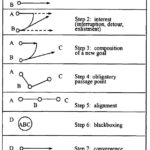
To fiction
Etymonline: Online Etimology Dictionary
fiction (n.)
early 15c., ficcioun, “that which is invented or imagined in the mind,” from Old French ficcion “dissimulation, ruse; invention, fabrication” (13c.) and directly from Latin fictionem (nominative fictio) “a fashioning or feigning,” noun of action from past participle stem of fingere “to shape, form, devise, feign,” originally “to knead, form out of clay,” from PIE root *dheigh- “to form, build.” […] Meaning “prose works (not dramatic) of the imagination” is from 1590s, at first often including plays and poems. Narrower sense of “the part of literature comprising novels and short stories based on imagined scenes or characters” is by early 19c. The legal sense (fiction of law) is from 1580s. A writer of fiction could be a fictionist (1827). The related Latin words included the literal notion “worked by hand,” as well as the figurative senses of “invented in the mind; artificial, not natural”: Latin fictilis “made of clay, earthen;” fictor “molder, sculptor” (also borrowed 17c. in English), but also of Ulysses as “master of deceit;” fictum “a deception, falsehood; fiction.”
Merriam-Webster Online Dictionary
fiction (noun) – fic·tion | \ ˈfik-shən \
Definition: 1: (a) something invented by the imagination or feigned; specifically: an invented story; I’d found out that the story of the ailing son was pure fiction. (Andrew A. Rooney); (b) fictitious literature (such as novels or short stories); was renowned as a writer of fiction; (c) a work of fiction; especially: NOVEL; Her latest work is a fiction set during the Civil War. 2: (a) an assumption of a possibility as a fact irrespective of the question of its truth; a legal fiction; (b) a useful illusion or pretense; it was only a fiction of independence his mother gave him; he was almost totally under her power (G. A. Wagner). 3: the action of feigning or of creating with the imagination; She engaged in fiction to escape painful realities.
Synonyms: fable, fabrication, fantasy (also phantasy), figment, invention
Words Related: anecdote, narrative, novel, story, tale, yarn, fairy tale, falsehood, falsity, fib, lie, mendacity, misrepresentation, prevarication, untruth, whopper, make-believe
Near Antonyms: actuality, realness
Antonyms: fact, materiality, reality
First Known Use: 14th century, in the meaning defined at sense 1(a).
History and Etymology: Middle English ficcioun “invention of the mind,” borrowed from Middle French fiction, borrowed from Latin fictiōn-, fictiō “action of shaping or molding, feigning, pretense, legal fiction,” from fig-, variant stem of fingere “to mold, fashion, make a likeness of, pretend to be” + –tiōn-, –tiō, suffix of verbal action — more at FEIGN.





 O LaSPA é sediado no Instituto de Filosofia e Ciências Humanas (
O LaSPA é sediado no Instituto de Filosofia e Ciências Humanas (